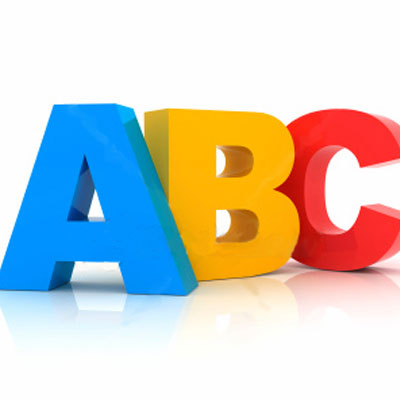
|
Neuroscientists have long observed that learning a language presents a different set of opportunities and challenges for adults and children. Adults easily grasp the vocabulary needed to navigate a grocery store or order food in a restaurant, but children have an innate ability to pick up on subtle nuances of language that often elude adults. For example, within months of living in a foreign country, a young child may speak a second language like a native speaker. Experts believe that brain structure plays an important role in this “sensitive period” for learning language, which is believed to end around adolescence. The young brain is equipped with neural circuits that can analyze sounds and build a coherent set of rules for constructing words and sentences out of those sounds. Once these language structures are established, it’s difficult to build another one for a new language. In a new study, a team of neuroscientists and psychologists from Massachusetts Institute of Technology (MIT) discovered another factor that contributes to adults’ language difficulties: When learning certain elements of language, adults’ more highly developed cognitive skills actually get in the way. The researchers discovered that the harder adults tried to learn an artificial language, the worse they were at deciphering the language’s morphology —the structure and deployment of linguistic units such as root words, suffixes, and prefixes. “We found that effort helps you in most situations, for things like figuring out what the units of language that you need to know are, and basic ordering of elements. But when trying to learn morphology, at least in this artificial language we created, it’s actually worse when you try,” said Amy Flynn a postdoc at MIT’s McGovern Institute for Brain Research. Finn and colleagues from the University of California at Santa Barbara, Stanford University, and the University of British Columbia describe their findings in journalPLOS ONE. Linguists have known for decades that children are skilled at absorbing certain tricky elements of language, such as irregular past participles (examples of which, in English, include “gone” and “been”) or complicated verb tenses like the subjunctive. “Children will ultimately perform better than adults in terms of their command of the grammar and the structural components of language —some of the more idiosyncratic, difficult-to-articulate aspects of language that even most native speakers don’t have conscious awareness of,” Finn says. In 1990, linguist Elissa Newport hypothesized that adults have trouble learning those nuances because they try to analyze too much information at once. Adults have a much more highly developed prefrontal cortex than children, and they tend to throw all of that brainpower at learning a second language. This high-powered processing may actually interfere with certain elements of learning language. “It’s an idea that’s been around for a long time, but there hasn’t been any data that experimentally show that it’s true,” Finn says. Finn and her colleagues designed an experiment to test whether exerting more effort would help or hinder success. The Study First, they created nine nonsense words, each with two syllables. Each word fell into one of three categories (A, B, and C), defined by the order of consonant and vowel sounds. Study subjects listened to the artificial language for about 10 minutes. One group of subjects was told not to overanalyze what they heard, but not to tune it out either. To help them not overthink the language, they were given the option of completing a puzzle or coloring while they listened. The other group was told to try to identify the words they were hearing. Each group heard the same recording, which was a series of three-word sequences —first a word from category A, then one from category B, then category C —with no pauses between words. Previous studies have shown that adults, babies, and even monkeys can parse this kind of information into word units, a task known as word segmentation. Subjects from both groups were successful at word segmentation, although the group that tried harder performed a little better. Both groups also performed well in a task called word ordering, which required subjects to choose between a correct word sequence (ABC) and an incorrect sequence (such as ACB) of words they had previously heard. The final test measured skill in identifying the language’s morphology. The researchers played a three-word sequence that included a word the subjects had not heard before, but which fit into one of the three categories. When asked to judge whether this new word was in the correct location, the subjects who had been asked to pay closer attention to the original word stream performed much worse than those who had listened more passively. The findings support a theory of language acquisition that suggests that some parts of language are learned through procedural memory, while others are learned through declarative memory. Under this theory, declarative memory, which stores knowledge and facts, would be more useful for learning vocabulary and certain rules of grammar. Procedural memory, which guides tasks we perform without conscious awareness of how we learned them, would be more useful for learning subtle rules related to language morphology. “It’s likely to be the procedural memory system that’s really important for learning these difficult morphological aspects of language. “In fact, when you use the declarative memory system, it doesn’t help you, it harms you,” Finn says. Still unresolved is the question of whether adults can overcome this language-learning obstacle. Finn says she does not have a good answer yet but she is now testing the effects of “turning off” the adult prefrontal cortex using a technique called transcranial magnetic stimulation. Other interventions she plans to study include distracting the prefrontal cortex by forcing it to perform other tasks while language is heard, and treating subjects with drugs that impair activity in that brain region. |
长期以来,神经学家一直认为语言的学习对成年人和孩子来说有着不同的机遇与挑战。 成年人很容易地掌握杂货店或餐馆必备词汇,孩子就有与生俱来能力,辨别语言中细微的差别,而这些差别经常会把成年人难住。 比方说,孩子只要在国外生活几个月,就可以像外国人一样说外语。 一些专家认为大脑结构会影响人们语言学习的敏感期,而敏感期止于青春期。 孩子的大脑含有神经回路,能够分析声音,建立起一套连贯的规则,从而利用这些声音组词造句。 这些语言结构建立完成,大脑就很难形成新的结构,学习新一门语言。 在一项研究中,由来自麻省理工学院(MIT)神经学家及心理学家组成的研究团队发现另一种因素,可以解释成年人学习语言的难点:在学习语言的某一方面时,成年人高度发达的认知技能实际上阻碍了语言的学习。 研究人员发现,成年人在学习人造语言的过程中越努力,那么他们在学习语言形态学方面表现就越糟糕。(形态学指的是词根、后缀及前缀等语言单位的结构及组合。) “研究发现,多数情况下,努力有所作用,比如,你想要解出你需要知道的是那种语言单位及基础的成分顺序安排。但是,当你想要学习形态学的时候,学习我们自己创造的语言时,越努力,效果越差。”麻省理工学院麦戈文人脑研究所的博士后艾米·弗林(Amy Flynn)表示。 来自加州圣巴巴拉大学、斯坦福大学及英属哥伦比亚大学的芬恩(Finn)及同事在《公共科学图书馆·综合》杂志上发表了他们的研究成果。 几十年来,语言学家都知道孩子善于消化吸收语言学习中的难点问题,像是不规则过去分词(英语中的例子,比如“gone”和“been”)或是虚拟语气中复杂的动词时态。 “对于语法及句式结构,孩子总会比成年人掌握地更好,比如,即便是说母语的人大多也没有意识到的一些比较特殊、发音困难的问题等。”芬恩说。 1990年,语言学家爱丽莎·纽波特(Elissa Newport)提出一个假设,成年人理解这类细微差别有困难是因为他们试图同时分析过量的信息。成年人的前额皮质比起孩子,更加高度发达,他们往往会绞尽脑汁去学习第二门语言。 事实上,这个高强度的学习过程也许会干扰某些语言学习因素。 “这个想法已存在多时,但是目前为止,没有任何实验数据证明它的正确性。”芬恩说。 芬恩及同事设计了一个实验,测试付出更多的心力是否有助于或有碍于语言学习。 研究过程 首先,他们创造了九个毫无意义的词,每个词两个音节。再根据辅音及原因的排列,将这些词分为三类(A、B及C类)。 研究对象听这些人造语言大约10分钟。其中一组被告知不要过度分析他们听到的内容,也不要置若罔闻。 为了不让他们过度分析,他们可以选择在听的过程中完成拼图或给图上色。另外一组被告知要尽量辨析他们听到的内容。 每个小组听的都是同样的内容,三个单词为一个单位,第一个为A类词,第二个B类,接着C类,词与词中间没有停顿, 既往研究显示成年人、孩子,甚至是猴子都能理解这类单词组信息,亦被称为“词切分”。 两组实验对象都能成功地完成词切分,虽然认真分析的那组表现更好一点。同样地,在词汇顺序排列的任务中,两组也都完成得很好。第二个任务要求实验对象在听过的正确次序(ABC)与错误词序(ACB)中作出选择。 最终测试考量他们在辨别语言形态方面的技能。 研究人员播放一连串三词组和,其中包括他们没有听过的词序,但也符合分类要求。 当为要求对新词词序作出判断时,认真分析原词语流的那组实验对象表现比消极地听的那组差得多。 研究结果与语言习得的一个理论相符,那就是,语言的某些部分是通过程序记忆学习来的,然而其他的一些是由陈述性记忆习得的。 在该理论体系下,陈述性记忆,用于储存知识与事实,这种记忆在词汇与某些语法规则的学习中作用更明显。 程序性记忆,指导我们在不了解学习方式的情况下完成任务,这种记忆在语言形态相关的微妙规则学习中作用更明显。 “在较有难度的语言形态学方面的学习中,程序性以及系统可能发挥着更大的作用。” “事实上,使用陈述性记忆体系,并不起作用,反而是帮倒忙。”芬恩说。 令人未解的仍是成年人是否能够克服语言学习的障碍。芬恩说她也没有一个合理的答案,但是现在她正使用叫做经颅磁刺激的技术,测试“关闭”成年人前额皮质的作用。 她还计划研究其他方面的干扰,比如在听的过程中,通过强制性地完成任务,干扰前额皮质,使用药物影响大脑特定区域的活动等。 扫一扫,关注微博微信
  (译者 Chinsane 编辑 高晴) |
